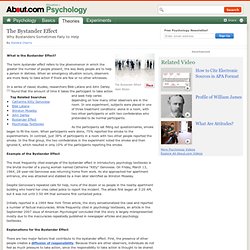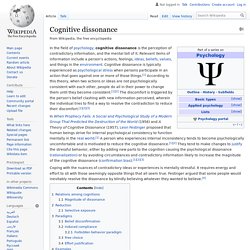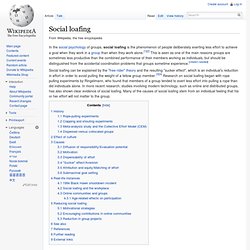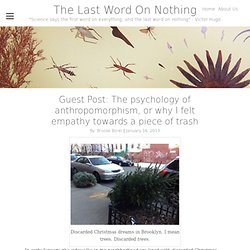

Rain12913 comments on How to spot a psychopath... Listening to your heart. How interoception shape... [Psychol Sci. 2010] Electric Shock Study Shows We'd Rather Hurt Ourselves Than Strangers. Developmental Psychology. Why We Can't See Ourselves The Way Others Do. The odd psychology of the compassionate crowd – Michael Bond. There’s nothing like a riot to bring out the amateur psychologist in all of us.

Consider what happened in August 2011, after police killed Mark Duggan, a 29-year-old man from the London suburb of Tottenham. Thousands took to the streets of London and other English towns in the UK’s worst outbreak of civil unrest in a generation. When police finally restored order after some six days of violence and vandalism, everyone from the Prime Minister David Cameron to newspaper columnists of every political persuasion denounced the mindless madness, incredulous that a single killing, horrific as it was, could spark the conflagration at hand.
Crowd Psychology. MIT Center for Collective Intelligence. You Know More than You Think. There is an old saying that two heads are better than one.

This saying received empirical support in social psychology in the 1920s, when a series of studies showed that groups were more accurate than their individual members. The scope of teleological thinking in preschool ch... [Cognition. 1999. The psychology of hating food (and how we learn to love it) Symbolic interactionism. Symbolic interactionism is a sociological perspective that is influential in many areas of the sociological discipline.

It is particularly important in microsociology and social psychology. Symbolic interactionism is derived from American pragmatism and particularly from the work of George Herbert Mead. Herbert Blumer, a student and interpreter of Mead, coined the term "symbolic interactionism" and put forward an influential summary of the perspective: people act toward things based on the meaning those things have for them; and these meanings are derived from social interaction and modified through interpretation. [citation needed] Sociologists working in this tradition have researched a wide range of topics using a variety of research methods. History[edit] Stanley Millgram: Obedience to Authority. Creating False Memories. Test Your Awareness: Do The Test. Bystander Effect - people watch girl being abducted. Bystander Effect - What is the Bystander Effect. What is the Bystander Effect?

Dunbar's number. What is the Monkeysphere? Asch Conformity Experiment. The Stanford Prison Experiment. Cognitive dissonance. Psychological stress resulting from multiple contradictory beliefs, ideas, or values held at the same time Coping with the nuances of contradictory ideas or experiences is mentally stressful.

It requires energy and effort to sit with those seemingly opposite things that all seem true. Festinger argued that some people would inevitably resolve dissonance by blindly believing whatever they wanted to believe. Relations among cognitions[edit] To function in the reality of society, human beings continually adjust the correspondence of their mental attitudes and personal actions; such continual adjustments, between cognition and action, result in one of three relationships with reality:[2] Magnitude of dissonance[edit] The term "magnitude of dissonance" refers to the level of discomfort caused to the person. Unskilled and unaware of it: how difficul... [J Pers Soc Psychol. 1999. Social loafing. Social loafing can be explained by the "free-rider" theory and the resulting "sucker effect", which is an individual’s reduction in effort in order to avoid pulling the weight of a fellow group member.[3][4] Research on social loafing began with rope pulling experiments by Ringelmann, who found that members of a group tended to exert less effort into pulling a rope than did individuals alone.

In more recent research, studies involving modern technology, such as online and distributed groups, has also shown clear evidence of social loafing. Many of the causes of social loafing stem from an individual feeling that his or her effort will not matter to the group. History[edit] Rope-pulling experiments[edit] Results from Ringelmann's experiment The first known research on the social loafing effect began in 1913 with Max Ringelmann's study. Clapping and shouting experiments[edit] Meta-analysis study and the Collective Effort Model (CEM)[edit] Karau et al.' Dispersed versus collocated groups[edit]
Does Your Language Shape How You Think? Inside Jokes - Matthew Hurley, Daniel Dennett, and Reginald Adams, Jr. Bullies use the Superiority Theory to turn laughter into a weapon. My main issue with the superiority theory is that it is too simple.

It seems to me humor and laughter are pretty complex. Minds traumatised by disaster heal themselves without therapy. An Indian woman mourns the death of a relative killed in the Boxing Day 2004 tsunami. Photograph: Arko Datta/REUTERS One of the largest earthquakes ever recorded hit on Boxing Day 2004. The resulting tsunami devastated huge swaths of the Indian Ocean coastline and left an estimated quarter of a million people dead across Indonesia, Sri Lanka, India and Thailand. Should solitary confinement be considered a form of torture? Guest Post: The psychology of anthropomorphism, or why I felt empathy towards a piece of trash. In early January, the sidewalks in my neighborhood are lined with discarded Christmas trees.

It’s the collective holiday hangover trash, and quite frankly it makes me sad; the trees mark the moment of winter where all that is left are several cheerless months of cold and drudgery. My dog, however, goes apeshit over them. He loves to sniff them. He loves to pee on them. And, a couple of weeks ago, his Christmas tree habit led me to some unexpected psychological self-analysis. Psychology.uchicago.edu/people/faculty/cacioppo/jtcreprints/onseeinghuman.pdf. The scientific equivalent of "When did you stop beating your wife?" This creepy psychological technique will sabotage anyone's self-esteem. Placebo buttons do absolutely nothing, and they are everywhere. Placebo Buttons. The Misconception: All buttons placed around you do your bidding.

The Truth: Many public buttons are only there to comfort you. You press the doorbell button, you hear the doorbell ring. You press the elevator button, it lights up. You press the button on the vending machine, a soft drink comes rattling down the chute. Your whole life, you’ve pressed buttons and been rewarded. The thing about buttons, though, is there seems to be some invisible magic taking place between the moment you press them down and when you get the expected result. The Science of What Makes an Introvert and an Extrovert. Neurological Ticks.
Science Shows How Reddit Users Are Like Sheep. Psychologists Identify the Best Ways to Study. Education generally focuses on what you study, such as algebra, the elements of the periodic table or how to conjugate verbs.

But learning how to study can be just as important, with lifelong benefits. It can teach you to pick up knowledge faster and more efficiently and allow you to retain information for years rather than days. Cognitive and educational psychologists have developed and evaluated numerous techniques, ranging from rereading to summarizing to self-testing, for more than 100 years. Some common strategies markedly improve student achievement, whereas others are time-consuming and ineffective. Yet this information is not making its way into the classroom. Select an option below: Customer Sign In. Researchers revisit history's most adorable psychological experiment, find something new.